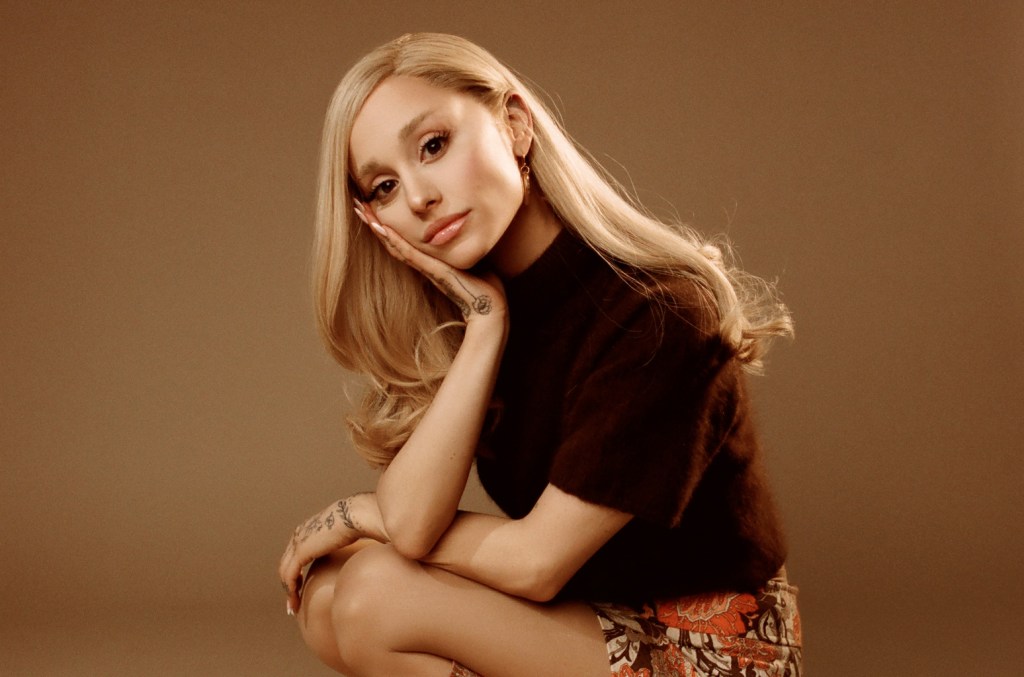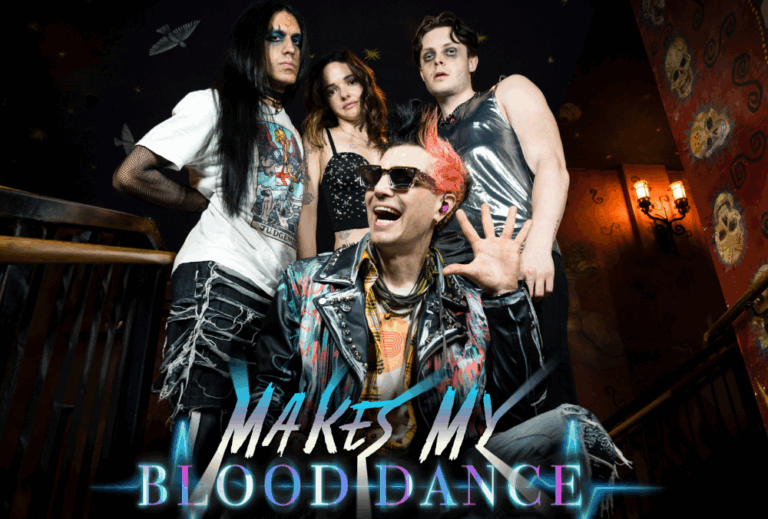In a move that highlights her selective engagement with social media, Ariana Grande, who deactivated her Twitter account years ago but remains the seventh-most-followed person on Instagram, is set to join HYBE’s superfan platform, Weverse.
Weverse Company tells Billboard that the chart-topping star will join the platform on Sunday (July 21), adding to a roster that includes BTS, BLACKPINK, JVKE, NCT 127, (G)I-DLE, Lauv, YOASOBI, Conan Gray, AKB48 and thuy. In joining the platform, Grande will have the ability to post messages and content to her own dedicated community, hold livestreams for members, read personalized fan letters, upload exclusive media content, share disappearing messages, and utilize the popular Weverse Shop, which sold more than 18 million pieces of merchandise last year to fans in more than 198 countries.
The announcement marks a significant moment for both Grande and Weverse, opening up a new way for the singer to deepen her connection with fans while showing a commitment to her continued business relationship with HYBE and HYBE America CEO (and Grande’s former manager) Scooter Braun.
Trending on Billboard
Since opening in June 2019 with Billboard 200 chart-toppers TOMORROW X TOGETHER as its first artist, Weverse now hosts 146 artists from countries including South Korea, Japan and the U.S. Its biggest artist community, for BTS, boasts 26 million members, while the ENHYPEN community has 9.8 million. Today, HYBE reports over 155 million lifetime downloads and an average of 10 million monthly active users across 245 countries and regions, with 90% of its user base now coming from outside Korea. Despite Warner Music Group (WMG) announcing plans for its own superfan app — as well as WMG and Sony investing early in rival superfan platform Fave — Weverse says its start with K-pop artists delivered important insights to entice top Western stars like Grande to join.
“What’s lucky for us has been that K-pop idols are the types of artists that have a very strong core fanbase,” Joon Choi, president of Weverse Company, tells Billboard of the company’s half-decade of growth that now includes investment from Universal Music Group. “As a platform and a business, we had already enjoyed the competitive edge or advantage of being there first and being there early to observe what superfans actually want.”
While artists can use Weverse to access first-party data for content delivery, promotion and to stay connected to international fans, the platform has expanded opportunities in live music with not only event streaming but its Weverse Con Festival and a Weverse by Fans tool through which fans can develop their own merch.
“We were there earlier and we have a long experience of observing the demands of our fans,” Choi adds. “That’s why we were able to create this one-stop fan service that includes merch development, merch selling, communities, videos, live streaming and even magazines…I do see the growth of startups or services that are entering this particular [superfan] market and that’s good. The more competition in the market is actually better for us because being the only player in that particular market sector makes us nervous.”
New competitors or not, Weverse continues to expand; currently, the company boasts a total of 400 employees in South Korea, 60 in Tokyo, and 20 in Santa Monica, Calif. (with the target to grow to 30 this year). And with a major star like Grande, there’s a slew of Arianators that could soon be joining the platform. Still, the executive admits he doesn’t know what to expect from the Eternal Sunshine singer once she officially joins. As he puts it, “It is totally up to the artists.”
Read on for more insights from Joon about Grande’s big move and what lies in store for Weverse’s future.
Weverse is adding new artists all the time, but Ariana Grande is a huge name with a worldwide fanbase. What have the weeks been like leading up to this announcement?
I just traveled a lot; I’ve been a globetrotter. We have offices in Santa Monica and Tokyo, and in each office location our leaders are currently meeting and contacting many artists and labels, so I believe our platform and business are becoming truly international and crossing borders. As we do that, we have opportunities to engage with and work with big artists, but also rising stars, so these opportunities are being created.
In the past, Weverse or artists have held special events or activities to begin their time on the platform. Will Ariana have a welcome party?
My simple answer to that question is that it is totally up to the artists. So, although we do have sessions where we offer guidelines or guidance in terms of how to better utilize the platform to cultivate the superfan culture or fandom, we do not necessarily engage too much [in terms of] planning activities or what’s going on the Weverse platform. I know that this might not be the direct answer that you’re looking for, but we have artists onboarded onto Weverse with a very good understanding of the difference between Weverse and other social media platforms.
What opportunities do you see for Weverse in welcoming Ariana Grade, and what opportunities are now open to Ariana?
Weverse is definitely a distinct platform, different from other social media platforms, so I’m also very curious how it will be utilized by artists like Ariana Grande. It really depends on each artist or label whether they discuss details about how they want to or plan to utilize Weverse. But in this particular case, we don’t know yet — that’s something that I’m closely watching.
But I would like to add that when I look at Weverse from my perspective as the leader of this business, it’s important to have enough resources and big enough clusters of a particular genre, specific country or culture. So, that’s why we’ve been working hard to onboard many artists. During the first half of this year alone, we have onboarded Nightly, thuy, Lauv, Umi, Conan Gray and JVKE. And then we have Ariana Grande. But Gracie Abrams has been very active as well; she’s good. So, when you see Weverse as a platform and in terms of the growth of our platform, it is very important that we have thriving clusters of certain music genres, countries or cultures to generate a network effect as well.
Weverse does a lot of business selling music, albums and merchandise via Weverse Shop, but Ariana isn’t only involved in music: she has R.E.M Beauty and perfumes; she’s in movies and television. Does she give you opportunities to expand into new commerce markets?
I can’t comment on an artist’s existing merchandise lines or albums since there must be agreements or contracts in terms of production and distribution in place. How merchandise is developed and sold through Weverse really varies by each artist. But a feature that we have on Weverse, Weverse by Fans, has been very effective and is gaining a lot of attention from artists because it is based on fan demand. Also, Weverse by Fans doesn’t require a minimum quantity of manufacturing goods for production. So, as soon as there’s enough demand for a certain type of merch, we can immediately produce and sell those.
On one hand, Ariana Grande is one of the most followed people on Instagram, but she also deactivated her Twitter years ago and takes social media breaks. How were discussions with an artist who might have complex feelings about social media?
That’s a very good question. Actually, when we meet a lot of artists, we tell the artists to actively use other social media because Weverse is a little different. It’s a place where people who love the artist gather. This isn’t our claim — artists have been saying this particular characteristic makes Weverse a very friendly and safer platform for artists to engage with their fans and the public compared to [other] social media…and that’s not just specific to big-name artists. We have been having opportunities to work with rising rookies as well. We don’t really care whether it’s a big-brand artist or not; what’s more important for us is to seek and discover artists interested in cultivating superfan culture, regardless of how famous or how popular they are, to work with us and use Weverse.
Ariana is the seventh-most-followed person in the world on Instagram. Do you worry that adding an artist with such a wide audience could open Weverse up to trolls or those with bad intentions?
Our product features are already equipped and have the advantage of features like filtering, reporting and in-house moderators to prevent and manage ill-intended activities on Weverse’s platform. I do understand the concern that you raised regarding such potential, and I agree with you. However, such circumstances or ill-intended activities occurred for artists already onboarded on Weverse. So, it would not just be for Ariana Grande that such a thing could happen. But I believe we have about four years’ know-how in operating and managing trolls or activities like that. So, we are not too worried, although we are still being very, very cautious about how to manage that.
I’d add that we always tell artists when onboarded to Weverse that the best use case has been using live broadcasts to communicate with fans directly. K-pop artists have been doing so well in terms of using Weverse as a platform for that, and also through the membership, they can have closer, more direct interactions with their fans as well. So, we’ve been telling artists from the inception, from the moment that they are onboarded to Weverse, that these are some of the ways that are historically proven to be very effective to have a very long-term and sustainable fandom relationship.
What is the onboarding process like? Are you personally meeting top artists?
We’re not a service that allows anyone to sign up, [like] on a website like YouTube or other social media. We don’t know when that’s going to happen, maybe in the far future we will switch to such a model. But so far, we have been doing internal research to discover and identify artists who would have a potential benefit or whose fanbase overlaps with the user base of Weverse. These days we are getting a lot of inbound inquiries from artists or other labels themselves. In the past, we used to do a lot of outreach to discover or find more artists, but since last year, as words such as “superfan” and “Weverse” have become more buzzy in the industry and the market, we have been gaining a lot of attention.
It’s not just me but other teams; we call it a B2B team in Korea, but maybe in the United States, it’s called a customer success management team. We have internal resources that frequently discuss and follow up with labels and artists.
I’m personally curious as someone in media, do you ever imagine a day you might expand the type of people beyond musicians?
Definitely. We already have some actors and actresses onboarded, but this question is really good. We’ve thought about it, but the timeline is very important. The ultimate goal of Weverse is to create a superfan not only for human artists. While I believe Weverse is currently working the best for superfans of a person with a thriving fandom, we’ve already seen an interesting case of the virtual idol group in Korea called PLAVE with a significantly high engagement level within their community on Weverse, which is very, very noteworthy. That’s where we saw the potential of expanding this platform not just for human artists but also for virtual artists. However, we also see the possibility of extending this IP to include other types of artists; this is a fun future that we can imagine at the moment. We still have a lot of room for further growth within the music industry so that’s where we have greater focus.
Since you said this was your personal curiosity, I’m giving you my personal opinion and projection on that potential. [Laughs] My biggest question working at Weverse is, “How many people out of the entire human population would have the ‘superfan’ DNA?” That’s kind of the ultimate thing we are looking for. Someone might be a superfan of a certain sport or sports team — there’s always a superfan of something or someone.
There’s the Weverse Con Festival, Weverse Magazine, there’s exclusive shows to stream. Why is Weverse developing IP beyond the platform? I imagine a HYBE Festival would be well received.
Weverse is a platform, so neutrality is the greatest value that we really emphasize and prioritize, which has been the case since Chairman Bang [Si-Hyuk] originated this platform. From day one, we really valued neutrality as an important value for us, but also in using such a new business model, we believe that we can lead innovation in the music industry. When you look back on the music industry’s history for the last two or three decades, it started by simply selling albums, then the touring business rose, and since 2000, technology has been disrupting the music industry. Now, it’s time for us to seek the answer to what’s next, right? I think Weverse is a platform and a business that has been most actively conducting experiments in order to answer what’s next for the music industry. If our experiments succeed, we can definitely offer benefits to artists all around the world, and that has been the basic philosophical foundation for our business and platform. We’re very, very, very, very serious about it.
Some people here might not like what I’m just about to say, but considering all the other [types of] content — it can be TV shows, movies, video games, everything — we think music itself, just as a piece of content, is the least compensated compared to all the others. So, we really have to think about that from a business perspective. …There is way more around music, right? There is no doubt that music is the core — and that’s why the mission statement of HYBE is, “We believe in music” — and that’s where we started from. [But] to make it a sustainable business, that’s where we can evolve from.
It was fun to see JYP Entertainment founder J.Y. Park perform with Chairman Bang at Weverse Con Festival last month. JYP is one of the last big K-pop agencies not on Weverse. Was this a hint?
We’ve always wanted all the artists from JYP, no doubt! [Laughs] But this time, it was just about the music. But of course, we’ve always wanted JYP — simple!
Removing yourself from work for a second, who or what are you a superfan of?
I’ve been a very big [music] fan since the ’80s: I listened to Casey Kasem with America’s Top 10, I was a Billboard kid. I think about all the famous songs and artists from the ’80s and ’90s — I’m that old guy [Laughs] — and then I had the recent memorable experience with PLAVE. The DJ JoJo [Wright] from KIIS FM actually visited Weverse Con Festival, held a lot of interviews with artists performing, and mentioned that one of the most impressive interviews he had was with PLAVE. From my perspective, from the ’80s and ’90s to virtual artists on the radio, that’s a very interesting journey to see and experience.




